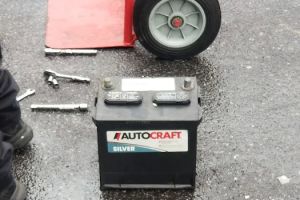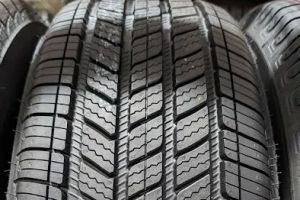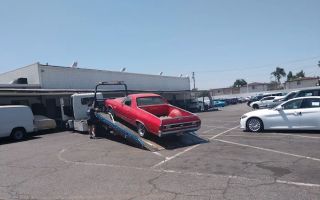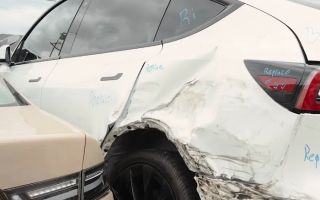How to Prepare for Flat Tires on a Long Road Trip
When you're planning a long road trip, one of the last things on your mind is the possibility of getting a flat tire. Yet, a flat tire can happen unexpectedly, especially if you're driving through remote areas or on roads less traveled. In my own experience, having dealt with flat tires on several trips, I’ve learned that being prepared can make a world of difference when you find yourself stuck on the side of the road. In this article, I’ll share essential tips on how to prepare for flat tires and how to handle the situation if one arises while you're out on a long adventure.

AutoZone Auto Parts
5701 Broadway, Bronx, NY 10463, USA
1. Checking Your Tires Before You Hit the Road
The first step in preparing for a potential flat tire is ensuring your tires are in good condition before you leave. Tire maintenance is crucial not only for safety but also to reduce the likelihood of an emergency while you're on the road.
Start by inspecting each tire for signs of wear and tear. Look for any punctures, cracks, or blisters on the sidewalls. If your tires have low tread depth, it's a good idea to replace them. You can use a penny to measure the tread depth: insert the penny upside down into the grooves of your tire; if the top of Lincoln’s head is visible, it’s time for new tires.
Also, check the tire pressure. Underinflated or overinflated tires can cause uneven wear and increase the chances of a blowout. Make sure your tires are inflated to the recommended pressure, which is usually found on the sticker inside the driver’s side door or in the owner’s manual.

Costco Tire Center
1250 Old Country Rd, Westbury, NY 11590, USA
2. Packing the Right Tools and Equipment
It’s always wise to be prepared with the right tools and equipment in case you do get a flat tire. Here’s a list of items you should keep in your car to handle the situation effectively:
- Spare tire: Make sure your spare tire is fully inflated and ready to go. If your vehicle has a temporary spare (also known as a “donut”), it’s designed to get you to a repair shop, so don’t rely on it for long distances.
- Jack and lug wrench: These are essential for lifting the car and removing the flat tire. If you don’t have a jack or lug wrench, check your vehicle’s manual for the correct specifications and buy the necessary tools.
- Tire sealant or plug kit: While not a permanent solution, tire sealants or plug kits can be a quick fix to get you back on the road temporarily until you can get your tire repaired or replaced.
- Flashlight: Especially if you’re driving at night or in low-light conditions, a flashlight will help you see what you’re doing when changing a tire.
- Reflective triangle or flares: These safety items can alert other drivers to your presence on the side of the road and help keep you safe.
- Roadside assistance card or app: If you’re unable to fix the flat on your own, having roadside assistance can save you time and hassle. Keep the number for your roadside assistance service handy, or make sure your car has an active app that can request help instantly.
3. How to Handle a Flat Tire: Step-by-Step
If you find yourself with a flat tire on your road trip, it’s important to stay calm and follow these steps to resolve the issue:
- Pull over to a safe spot: If possible, pull off the road completely and onto a flat, stable surface. Avoid stopping on slopes or in places where your car could be hit by passing traffic.
- Turn on your hazard lights: This alerts other drivers that you have an emergency and are not moving.
- Apply the parking brake: To prevent the car from rolling while you’re working on the tire, apply the parking brake.
- Use the jack to lift the car: Position the jack under the car’s designated jacking point (check your car’s manual for this location). Lift the car high enough to remove the flat tire and replace it with the spare.
- Remove the flat tire and replace it with the spare: Loosen the lug nuts and remove the flat tire. Put the spare on and hand-tighten the lug nuts onto the new tire.
- Tighten the lug nuts: Once the car is lowered back to the ground, use the lug wrench to tighten the nuts in a star pattern to ensure they’re secure.
- Check tire pressure: Ensure that your spare tire is properly inflated before continuing your trip.
4. Understanding Roadside Assistance Options
Even the most well-prepared drivers sometimes need help when it comes to flat tires. Roadside assistance services can be a lifesaver if you’re stuck on the side of the road. These services typically offer tire changes, flat tire repairs, and towing in case you can’t get your car back on the road immediately.
It’s a good idea to check if your car insurance or credit card includes roadside assistance coverage. Many insurance companies offer 24/7 emergency services for tire-related issues, so you don’t have to worry about dealing with it alone.
5. When to Consider a Tire Repair or Replacement
If you’ve used a tire sealant or patch kit, remember that these are temporary fixes. If your tire has sustained significant damage, it’s important to get it repaired or replaced as soon as possible. Driving on a damaged tire can be dangerous and could further damage your vehicle.
Many road trip destinations have tire repair shops, but if you're in a more rural area, it’s a good idea to plan ahead and know where the nearest service centers are along your route. You can also use mobile tire repair services that will come to your location to fix or replace your tire.
6. How to Prevent Flat Tires in the Future
The best way to avoid flat tires on your next road trip is through preventive maintenance. Regularly check your tire pressure, ensure your tires are in good condition, and rotate them as needed. Keeping your tires well-maintained can help you avoid many common causes of flat tires, such as blowouts or punctures.
Additionally, driving with caution on rough or poorly maintained roads can help reduce the chances of tire damage. Avoiding potholes and sharp objects on the road is also a good practice.




























